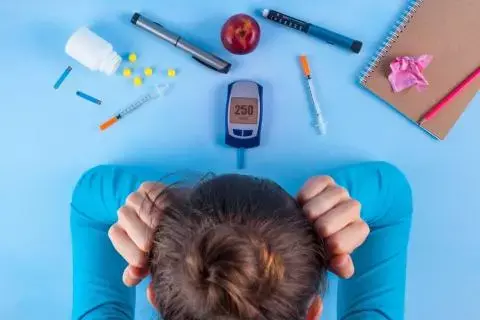- Home
- Medical news & Guidelines
- Anesthesiology
- Cardiology and CTVS
- Critical Care
- Dentistry
- Dermatology
- Diabetes and Endocrinology
- ENT
- Gastroenterology
- Medicine
- Nephrology
- Neurology
- Obstretics-Gynaecology
- Oncology
- Ophthalmology
- Orthopaedics
- Pediatrics-Neonatology
- Psychiatry
- Pulmonology
- Radiology
- Surgery
- Urology
- Laboratory Medicine
- Diet
- Nursing
- Paramedical
- Physiotherapy
- Health news
- Fact Check
- Bone Health Fact Check
- Brain Health Fact Check
- Cancer Related Fact Check
- Child Care Fact Check
- Dental and oral health fact check
- Diabetes and metabolic health fact check
- Diet and Nutrition Fact Check
- Eye and ENT Care Fact Check
- Fitness fact check
- Gut health fact check
- Heart health fact check
- Kidney health fact check
- Medical education fact check
- Men's health fact check
- Respiratory fact check
- Skin and hair care fact check
- Vaccine and Immunization fact check
- Women's health fact check
- AYUSH
- State News
- Andaman and Nicobar Islands
- Andhra Pradesh
- Arunachal Pradesh
- Assam
- Bihar
- Chandigarh
- Chattisgarh
- Dadra and Nagar Haveli
- Daman and Diu
- Delhi
- Goa
- Gujarat
- Haryana
- Himachal Pradesh
- Jammu & Kashmir
- Jharkhand
- Karnataka
- Kerala
- Ladakh
- Lakshadweep
- Madhya Pradesh
- Maharashtra
- Manipur
- Meghalaya
- Mizoram
- Nagaland
- Odisha
- Puducherry
- Punjab
- Rajasthan
- Sikkim
- Tamil Nadu
- Telangana
- Tripura
- Uttar Pradesh
- Uttrakhand
- West Bengal
- Medical Education
- Industry
High fasting blood sugar may Increase Risk of Cognitive Impairment

Individuals with mild cognitive impairment (MCI) often complain about their memory and show mild cognitive deficits on objective cognitive tests, but their cognitive impairment is not severe enough to qualify for dementia. In a recent study, researchers have found that elevated fasting blood glucose increases the risk of mild cognitive impairment. The study findings were published in the journal frontiers in Endocrinology on November 16, 2021.
Mild cognitive impairment (MCI) is a transitional state between normal elderly people and dementia, with a higher risk of dementia transition. At present, other advanced biomarkers, such as MRI and PET, are still under investigation for the diagnosis, grading, classification and prognosis of MCI. However, there is still little research on serum-based biomarkers that can be easily obtained through minimally invasive sample techniques for diagnosing MCI and assessing treatment response. Therefore, Dr Lin Sun and her team conducted a study to investigate whether routine blood and blood biochemical markers could be used to predict the onset of MCI.
The researchers obtained data from the prospective and observational cohort study on the brain health of 1015 elderly in Shanghai. Based on clinical evaluation and the scores of the Montreal Cognitive Assessment (MoCA), they divided elders into the MCI (n=444) and cognitively normal groups (n=571). They evaluated their fasting blood routine and blood biochemical indexes and collected their general demographic data by using a standard questionnaire.
Key findings of the study:
- Using binary logistic regression analysis, and after controlling several variables such as age and education, the researchers found that red blood cell count and fasting blood glucose were the influencing factors of MCI.
- However, as the area under the ROC curve of MCI predicted by red blood cell count was less than 0.5, they concluded that elevated fasting blood glucose was the risk factor of MCI and had a mild predictive effect.
The authors wrote, "To my knowledge, this is the first study to demonstrate an inverse association between elevated fasting glucose and MCI."
They concluded, "Elevated fasting blood glucose may be a risk factor for mild cognitive impairment, but the above conclusions need to be verified by longitudinal studies."
For further information:
Medical Dialogues Bureau consists of a team of passionate medical/scientific writers, led by doctors and healthcare researchers. Our team efforts to bring you updated and timely news about the important happenings of the medical and healthcare sector. Our editorial team can be reached at editorial@medicaldialogues.in.
Dr Kamal Kant Kohli-MBBS, DTCD- a chest specialist with more than 30 years of practice and a flair for writing clinical articles, Dr Kamal Kant Kohli joined Medical Dialogues as a Chief Editor of Medical News. Besides writing articles, as an editor, he proofreads and verifies all the medical content published on Medical Dialogues including those coming from journals, studies,medical conferences,guidelines etc. Email: drkohli@medicaldialogues.in. Contact no. 011-43720751


